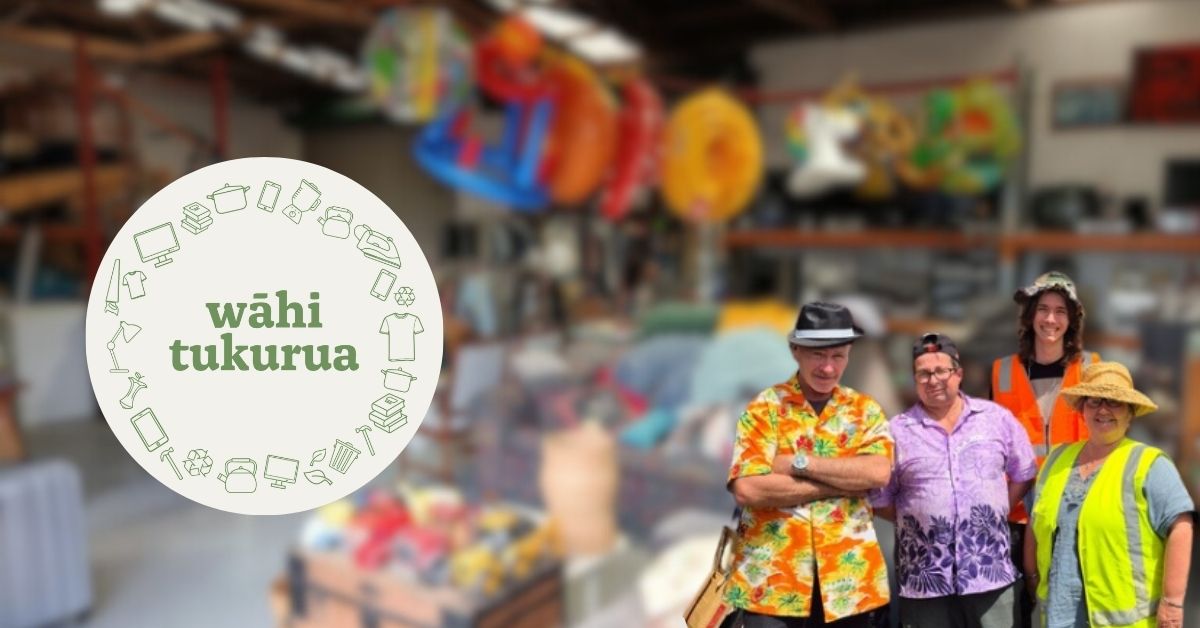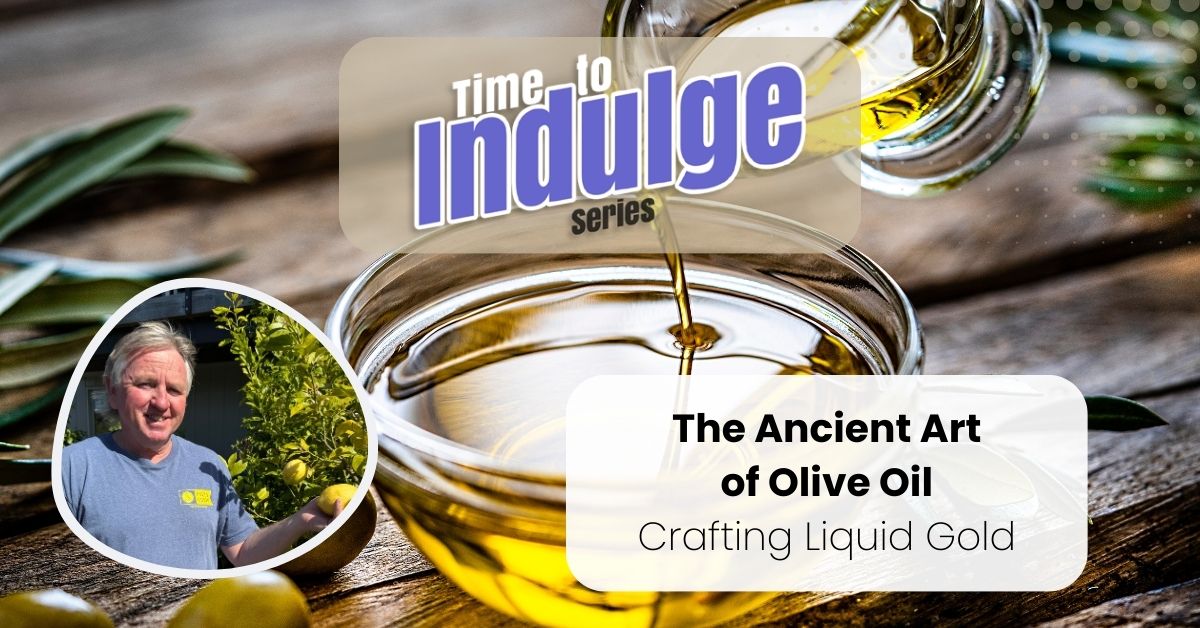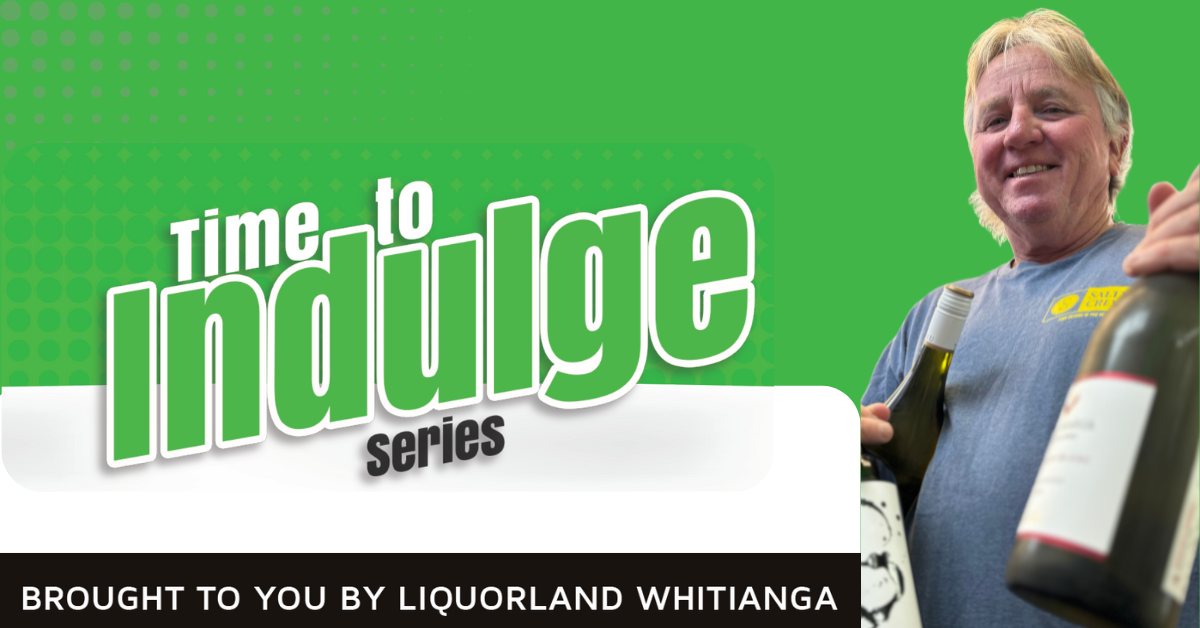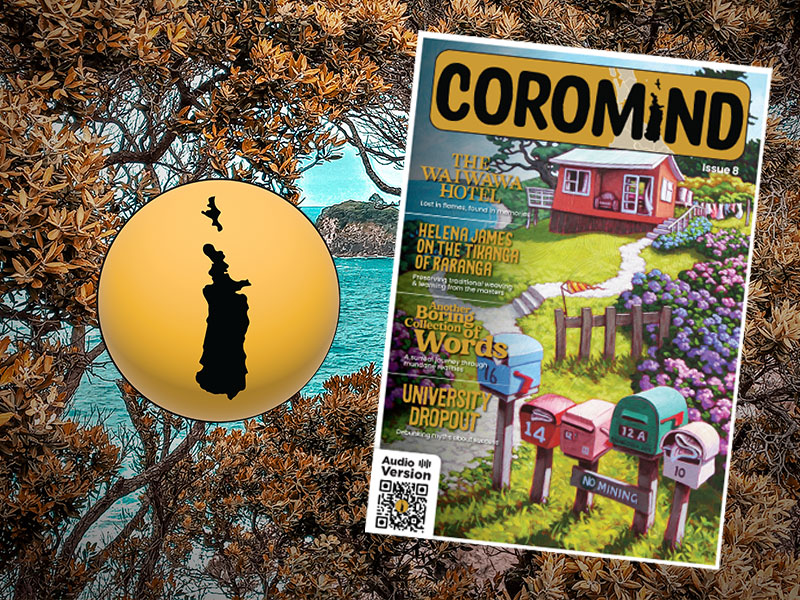Melody in motion in Paeroa
I first encountered Keegan shortly after relocating to New Zealand. I’d developed a persistent penchant – one that endures – for the occasional indulgence in the decadent temptations of local bakeries. While queuing to pay, a voice behind me inquired:
“Hey, are you a musician?”
Uncertain if the question was directed at me, my ego compelled me to turn. Perhaps because I am one. There he sat in his wheelchair, accompanied by his personal assistant, offering an earnest, slightly awkward smile, his eyes alight with defiant curiosity. I couldn’t resist a playful challenge:
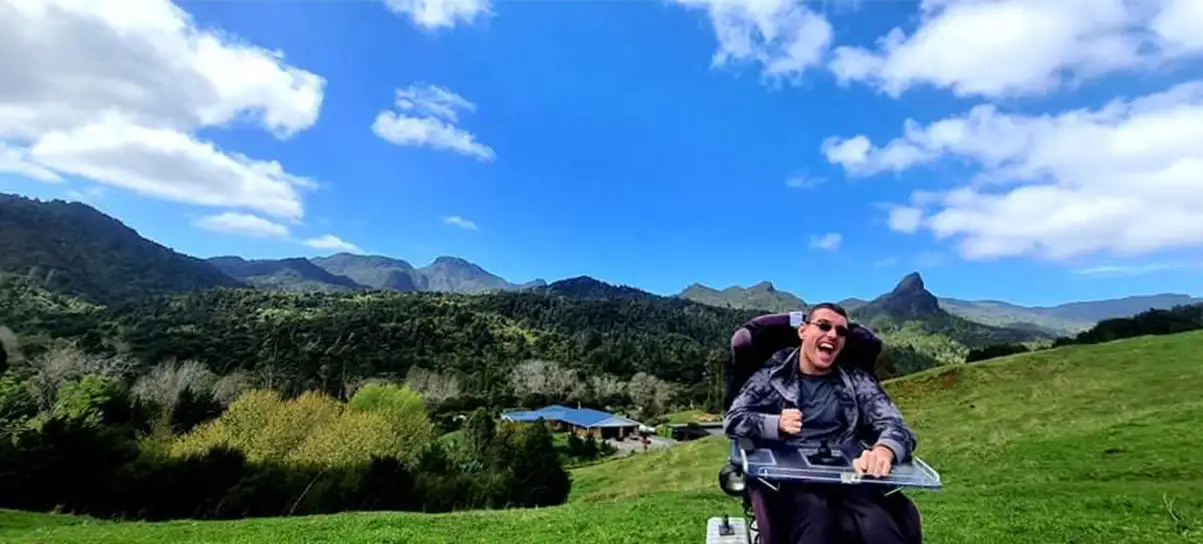
“Why would you think that?”
“Because you have dreadlocks,” he replied.
Simultaneously judged and disarmed by his candour, I conceded. Our exchange was brief – my turn had come to pay – but as I prepared to leave, charmed by his guileless demeanour, I retrieved a business card from my wallet and handed it to him. I departed, soon forgetting this serendipitous encounter. Too often had I offered cards without consequence; I expected nothing.
Days later, a concise email from Keegan surprised me, inviting a meeting. That message marked our friendship’s inception. But enough about me – allow me to introduce Keegan properly.
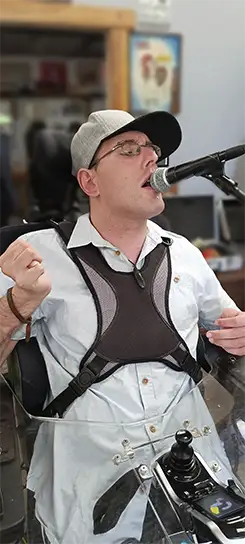
A lifelong Aucklander until recently, Keegan is a 29-year-old singer-songwriter living with cerebral palsy, a condition affecting movement, muscle control, coordination and balance.
He discovered his voice at age three in a chapel. Inspired, he began composing original music by thirteen, determined to forge his distinctive sound. Music became his sanctuary – a conduit for self-expression and a compass toward independence.
In 2017, he relocated with his parents to a lifestyle block in Paeroa.
Curious about his perspective, I asked him to elaborate about his upbringing.
“Growing up, I perceived my childhood as normal despite being unable to walk and facing societal exclusion. My resulting traumas led to a generalised anxiety diagnosis. Over years, I’ve learned to manage it, working daily to prevent its dominance. Each morning, I strategise my day for maximum productivity. My aspirations are independence, meaningful connections, and nurturing friendships.”
Regarding education, he reflected: “I wasn’t homeschooled and found mainstream schooling traumatic. Most institutions were ill-equipped to support my disability. I attended nine schools – only two were exceptional; the remainder failed to accommodate my needs or acknowledge my voice. After leaving most friends in Auckland, forging new bonds proved challenging. Rural life, while peaceful, can be profoundly solitary.”
I enquired whether communities or governmental institutions in New Zealand adequately supported his needs during his youth and presently.
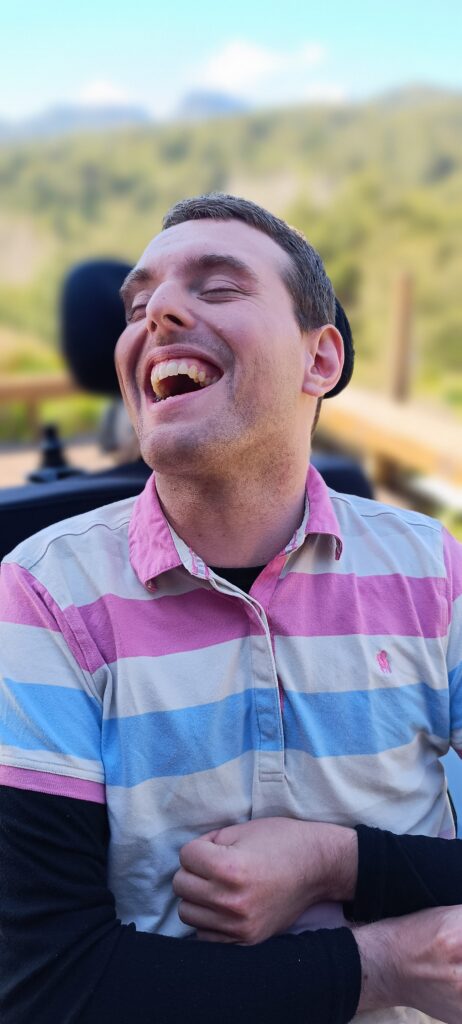
“School provided minimal support, though I’ve received more post-education. Transitioning proved difficult initially due to scarce options.
Recently, collaborating with a behavioural specialist and social worker has been transformative.
Of course, my parents’ unwavering love and support remain my eternal foundation.”
Given the physical challenges of his condition, I was particularly intrigued by his choice of songwriting as his artistic medium.
“I lack sufficient instrumental proficiency to compose, so my voice is my instrument. Through melody and lyrics, I articulate my continuous struggle navigating life as a man with a disability.
Music centres me. Fortunately, I collaborate with musicians who arrange and produce my work. To date, I’ve released two albums on streaming platforms like Spotify, with a third imminent.”
He also shared some insight into his daily routine.
“As a young man living with a disability, I have found that routine and planning help me remain positive, focused, and in control of my independence. I like to plan my week in advance, then break it down day by day as I go. A typical day for me starts with waking up nice and early (8 am) after a good night’s rest. I stretch to help my body wake up and kick-start the day.
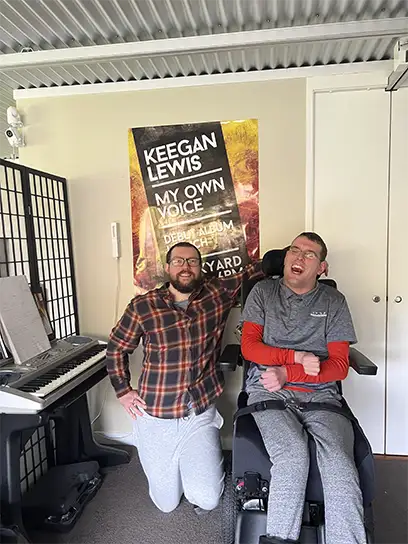
Completing my morning routine usually takes me two hours. This includes breakfast, taking medication, using the bathroom, getting dressed, and brushing my teeth. Then I’m ready to tackle my first responsibility of the day – property jobs using my 6-wheeler.
“I head out to feed the chickens, check on the cows, and check the mailbox. During the summer, sometimes I go to the orchard to pick fresh fruit. Once my property tasks are complete, I return home and continue with other responsibilities, such as checking emails and messages and then spend some time on my music.
After dinner, I retire to bed and reflect on my daily achievements. I then enter wind-down mode, after which I let my personal assistant know I’m ready for ‘lights out’.”
Finally, I asked about his future ambitions, both personal and musical.
“My ultimate goals involve cultivating friendships with like-minded individuals for camaraderie, music-making, and companionship. Naturally, in time I hope to find a life partner. Rural life offers tranquillity but also loneliness so I’m currently seeking flatmates who’d appreciate this setting. Musically, I work weekly with my producer, Isaac Smith, targeting my third album’s release by year-end. Long-term, I aspire to tour New Zealand, sharing my music and story to raise disability awareness. Until then, I’ll persist in creating and performing locally whenever possible.”
Keegan’s links:
Words by Amir Yussof
Find out more about Amir here.
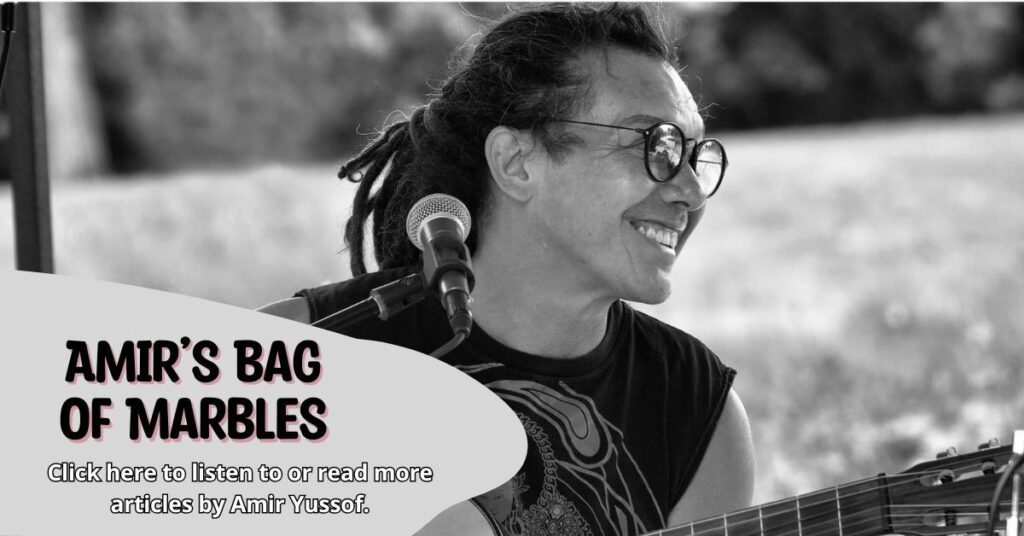
Coromind: Coromandel’s Collaborative Magazine

Help us take Coromind Magazine to new heights by becoming a member. Click here
Change the Weather for Your Business: Advertise with Us.
Advertise your business in the whole Hauraki Coromandel in the coolest Coromandel Art Magazine, from Waihi Beach/Paeroa /Thames up to the Great Barrier Island.
Advertise Smarter, Not Harder: Get in Touch



